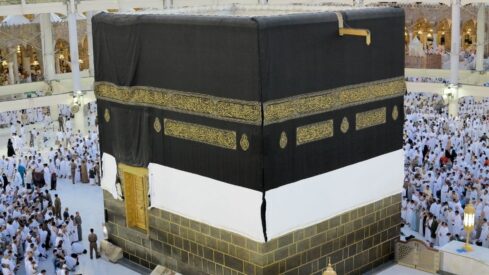Hajj, or the pilgrimage to Makkah, is the fourth basic act of worship (`ibadah). It is obligatory once in a lifetime only for those who can afford it. When we undertake the pilgrimage, we are required to suppress our passions, refrain from bloodshed, and be pure in word and deed. God promises rewards for our sincerity and submissiveness.
The Hajj is, in a way, the biggest of all acts of worship. This is so because unless people really loved God, then they would never undertake such a long journey, leaving all their near and dear ones behind them. This pilgrimage is unlike any other journey. Here, pilgrims’ thoughts are concentrated on Allah, their very beings vibrate with the spirit of intense devotion. When they reach the holy places, they find the atmosphere laden with piety and godliness; they visit places which bear witness to the glory of Islam, and all this leaves an indelible impression on their minds, which they carry to their last breath.
In addition, there are in Hajj, as in any other act of worship, many benefits that Muslims can gain. Makkah is the centre towards which the Muslims must converge once a year and discuss topics of common interest. Hajj refreshes in them the faith that all Muslims are equal and deserve the love and sympathy irrespective of their geographical or cultural origin. Thus, Hajj unites Muslims from around the world into one international brotherhood.
*By Abul A`la Mawdudi
This series of articles is part of the author’s book Towards Understanding Islam, Chapter 5, “Prayer and Worship.” Excerpted, with some modifications, from: http://www.ymofmd.com/books/tui/chp5.html


















